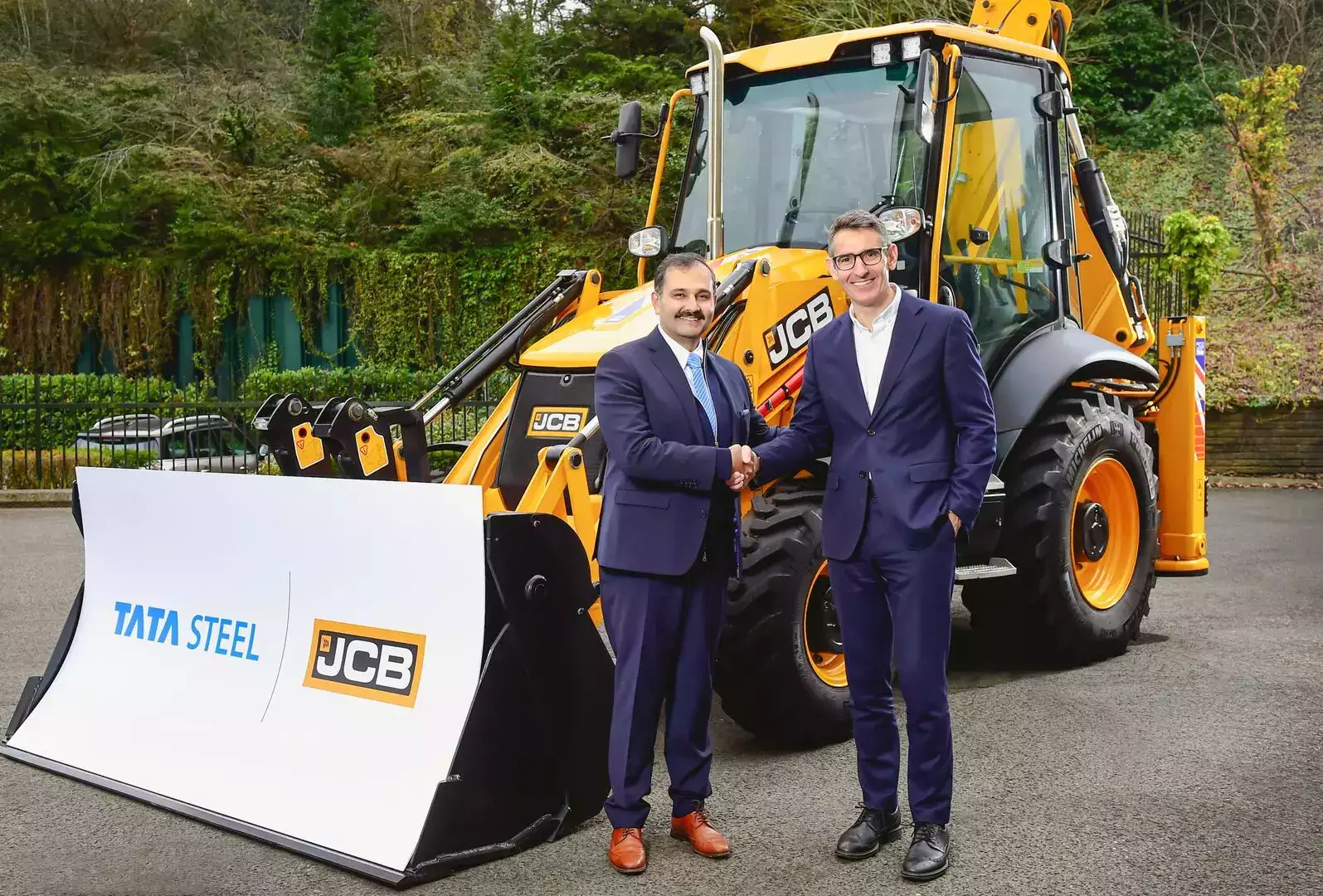 In October 2024, Tata Steel contracted with Tenova for the electric arc furnace and additional steelmaking equipment for the Port Talbot site. The transformation project is slated to begin in summer 2025.
In October 2024, Tata Steel contracted with Tenova for the electric arc furnace and additional steelmaking equipment for the Port Talbot site. The transformation project is slated to begin in summer 2025.Tata Steel UK and JCB have partnered to supply low-CO2(‘green’) steel, marking a significant step in both companies' decarbonisation efforts. This agreement ensures JCB will receive green steel from Tata Steel's Port Talbot plant once its planned transformation is complete. This transformation is supported by a EUR 1.25 billion joint investment with the UK Government and involves constructing a new electric arc furnace, aiming to significantly reduce emissions.
This is Tata Steel UK's first supply agreement since announcing the substantial investment to transition to low-CO2 steel production in South Wales. The deal highlights the commitment of both companies to reducing their environmental impact. JCB will incorporate this green steel into its construction equipment range.
The EUR1.25 billion investment includes building a new 3-million-tonne-per-year electric arc furnace at Port Talbot. This furnace will be one of the largest in the world. This new EAF technology offers a greener alternative to traditional blast furnace methods.
The electric arc furnace will utilize UK-sourced scrap metal to produce new steel. This eliminates the need to import iron ore and coal. Tata Steel projects this will cut the site’s CO₂ emissions by up to 90 percent. This also contributes to a reduction of the UK’s overall carbon emissions by about 1.5 percent.
Green steel transitionAnil Jhanji, Chief Commercial Officer, Tata Steel UK, said, “One of the key drivers in our transition plans is that our long-standing and loyal customers such as JCB need green steel to meet their own decarbonisation ambitions. They want to be supplied by a trusted partner making quality steel within the UK."
“This announcement that two of the UK’s largest manufacturers are working together to create a low-carbon supply chain is an important step in the UK’s transition to a circular economy.”
Wayne Asprey, Group Purchasing Director, JCB, added, “Tata Steel is a long-term supply partner for JCB and this agreement marks an essential next step in our journey towards supply chain decarbonisation. We are fully supportive of Tata Steel UK’s investment proposals and are pleased to be one of the first customers to endorse those plans by making this agreement to secure British-made green steel as soon as it is available.”
"This agreement marks an essential next step in our journey towards supply chain decarbonisation"
JCB’s ongoing decarbonisation journeyJCB has achieved numerous milestones in its decarbonisation journey. These include developing the first electric mini-digger in 2018 and the first hydrogen-powered machine in 2021. The company also continues to expand its range of fully electric equipment. Currently, JCB is testing the world's first hydrogen combustion engine-powered construction machines, the company said in a media release.
“We are fully supportive of Tata Steel UK’s investment proposals and are pleased to be one of the first customers to endorse those plans by making this agreement to secure British-made green steel as soon as it is available.”
In October 2024, Tata Steel contracted with Tenova for the electric arc furnace and additional steelmaking equipment for the Port Talbot site. The transformation project is slated to begin in summer 2025.
Tata Steel's vision is to establish Port Talbot as a leading European center for green steelmaking. The EUR1.25 billion investment, partially funded by a UK Government grant of up to EUR 500 million, represents the most substantial capital expenditure in UK steel production in decades. This initiative aims to increase the proportion of UK-sourced raw materials used in production from 10% to 75%. This will enhance the UK's self-sufficiency in steel and strengthen the resilience of steel production against global disruptions.
